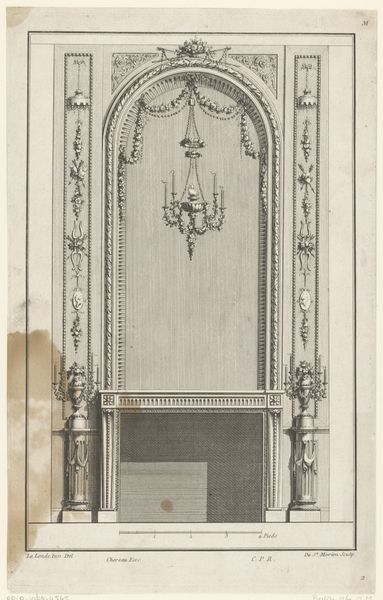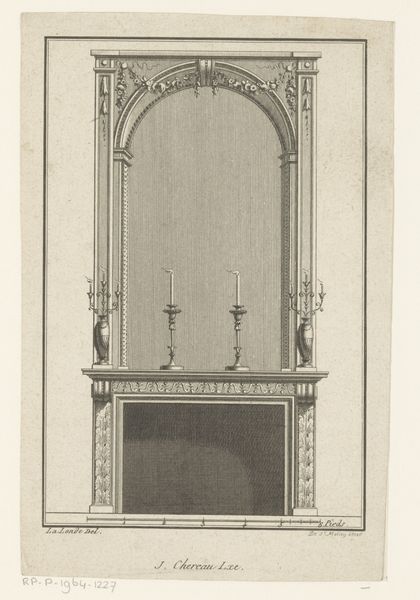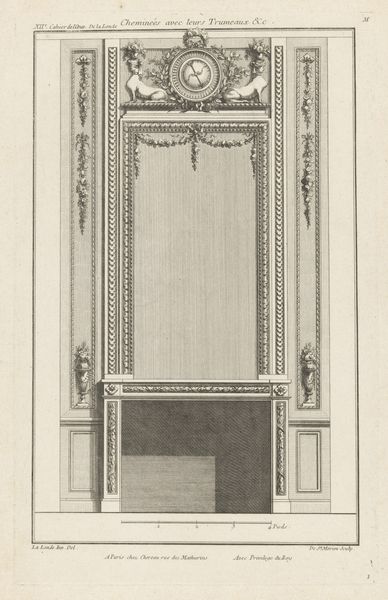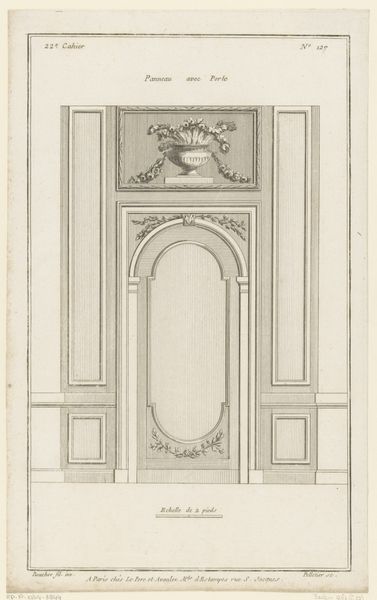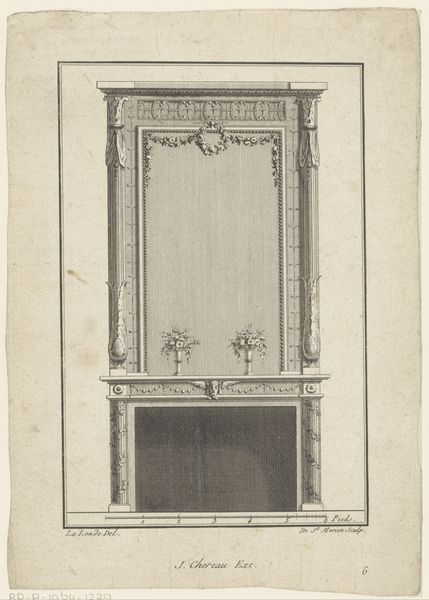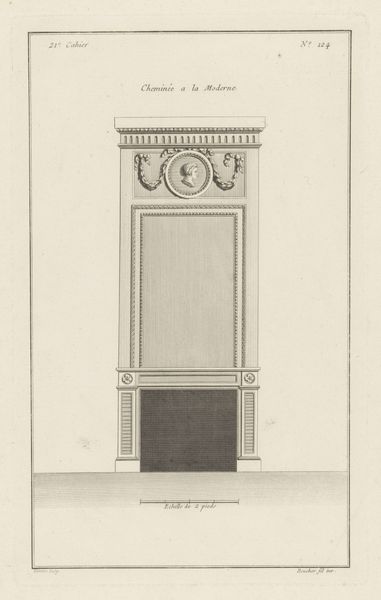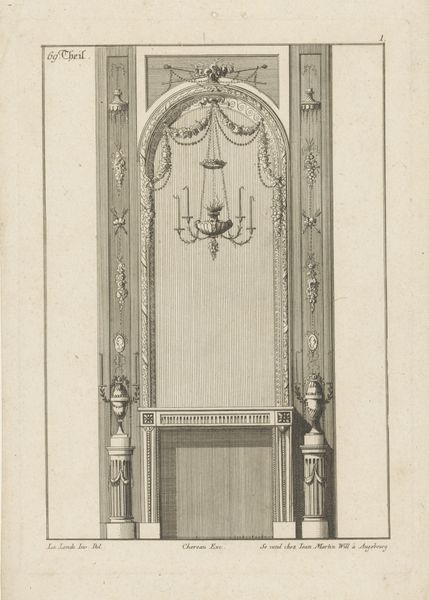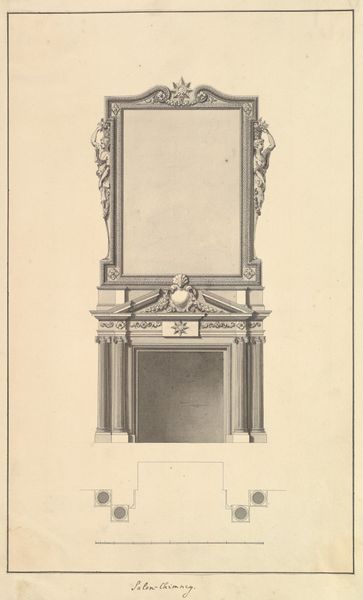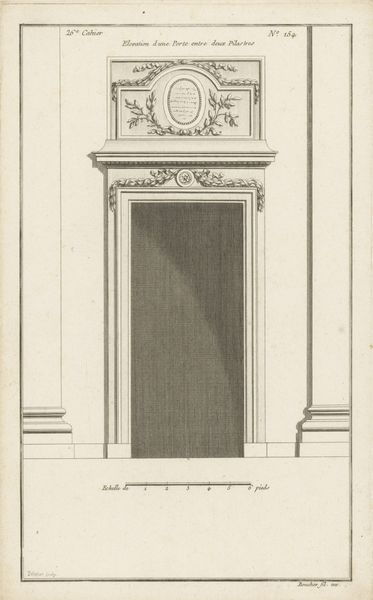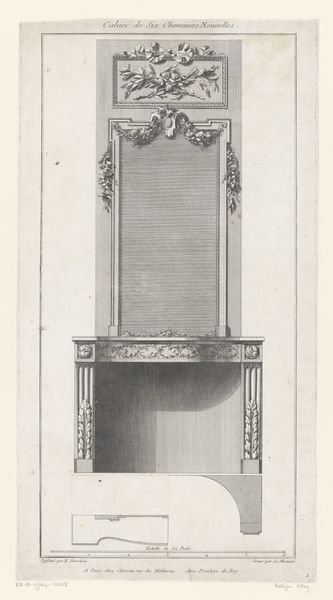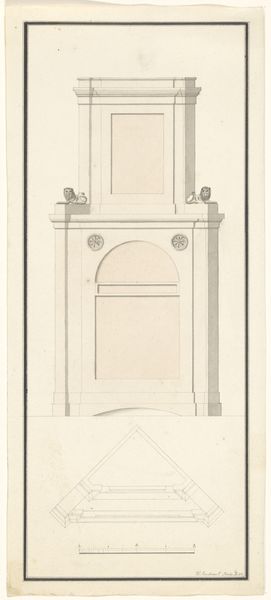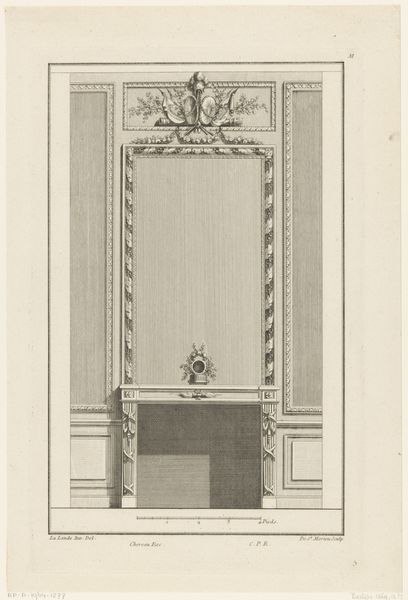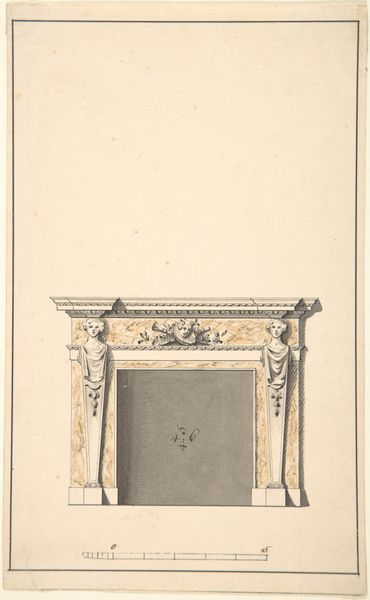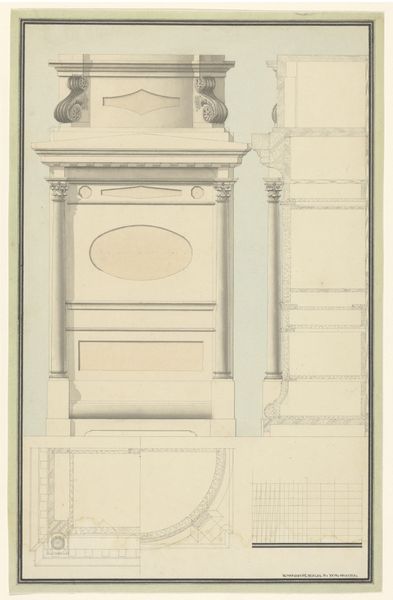
drawing, print, engraving
#
drawing
#
neoclacissism
# print
#
form
#
geometric
#
line
#
engraving
Dimensions: height 216 mm, width 140 mm
Copyright: Rijks Museum: Open Domain
Editor: Here we have "Schouw met klok en kandelaars," created around 1784-1785 by de Saint-Morien. It's an engraving, a print. It's strikingly linear and, dare I say, a little severe. What jumps out at you when you look at it? Curator: The most immediate element for me is the clear display of labor. This isn't simply an image, it’s the record of a very specific *process*. The engraving method itself – the deliberate scoring of lines to create form and shadow – speaks to a craft, a kind of artisanal production that was highly valued. Do you notice the way the lines delineate not just shape, but also texture, implying the quality of the materials being represented: the stone, the metal? Editor: Yes, the lines defining the texture are obvious once you point it out. So you're focusing on the engraving itself as a form of skilled work? Curator: Precisely! And considering the social context. We must remember these objects, the mantelpiece itself, and the candelabras would have been markers of wealth and status, expressions of material culture. The print then becomes another commodity, an object in its own right circulating within a network of production and consumption. Who would have commissioned and consumed a print like this? Architects? Affluent homeowners? Editor: Maybe as a source of inspiration? Almost like an early catalogue. I didn't think about it as another piece of commerce to be bought and sold. Curator: Exactly! This brings up the complex relationship between "high art" and craft, doesn't it? We're dealing with an object of utilitarian purpose depicted using the techniques of what we consider "fine art." It really makes you rethink the boundaries. It certainly provides food for thought. Editor: Absolutely. It shifts the way I see the print.
Comments
No comments
Be the first to comment and join the conversation on the ultimate creative platform.
